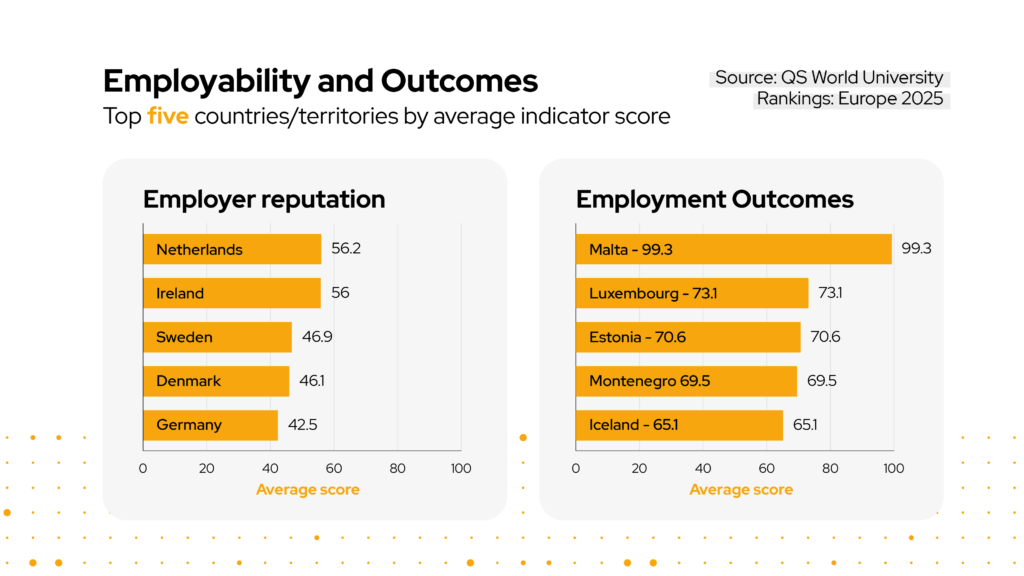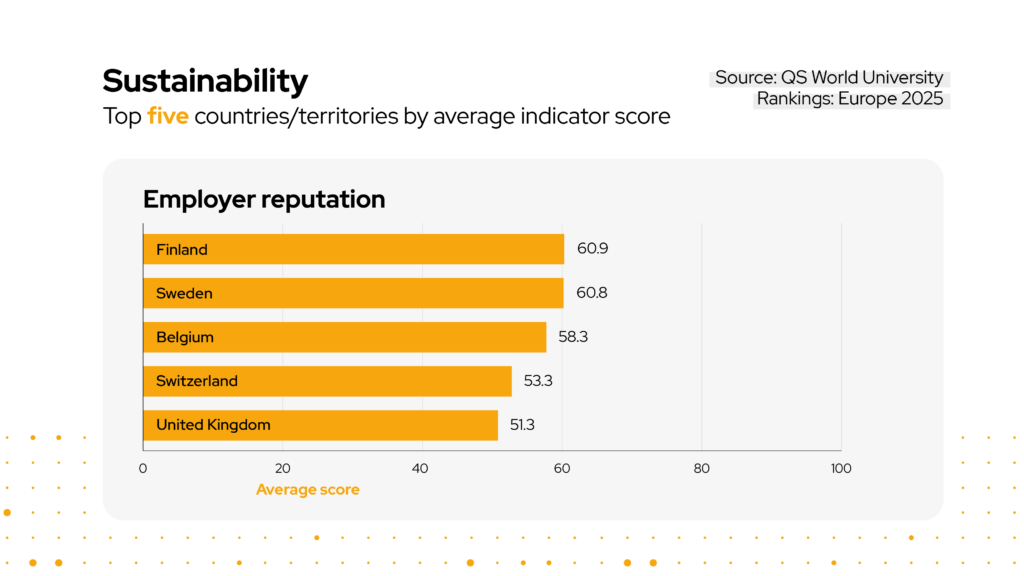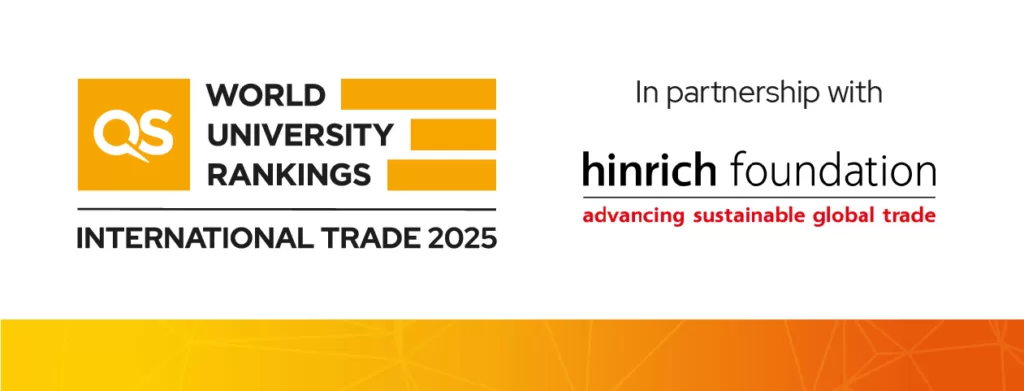
The QS World University Rankings: Europe 2025 are now live!
The first series of regional rankings to be released this year, we’ve assessed 685 institutions in the Europe region, using 12 performance indicators, some of which differ to those used for the overall QS World University Rankings 2025. This approach enables direct comparisons within the region, offering a more granular view of metrics for institutional benchmarking and helping students identify the highest quality universities.
ETH Zürich – Swiss Federal Institute of Technology is this year’s leading institution in the QS World University Rankings: Europe 2025, climbing from second place last year. Imperial College London now claims the second spot, replacing the University of Oxford who are now ranked third.
Who are the top ten universities in the QS World University Rankings: Europe 2025?
- ETH Zürich – Swiss Federal Institute of Technology, Switzerland
- Imperial College London, UK
- University of Oxford, UK
- University of Cambridge, UK
- University College London (UCL), UK
- The University of Edinburgh, UK
- The University of Manchester, UK
- King’s College London, UK
- Université PSL, France
- EPFL, Switzerland
QS World University Rankings: Europe 2025 – What’s different?
This ranking uses different indicators to the QS World University Rankings 2025. This is to highlight Europe’s unique characteristics as a regional ranking. Different indicators include:
- ‘Citations per Paper’ and ‘Papers per Faculty’: These indicators are separated from the broader ‘Citations per faculty’ indicator to better represent Europe’s high proportion of research-oriented institutions.
- ‘International Student Diversity’: This replaces International Student Ratio to better reflect the robust data on diversity and the wider range of international students at European universities.
- Inbound and Outbound Exchange Student Ratios.
Learn more about our ranking methodology here.
New entrants
There are 10 newly ranked institutions in the QS World University Rankings: Europe 2025, with the highest debutant being Ukraine’s Interregional Academy of Personnel Management (ranked 441st).
Regional highlights of the QS World University Rankings: Europe 2025

The Netherlands and Ireland lead in overall ‘Employer Reputation’ performance. Notably, Spanish institutions are enhancing their standing among employers, with 29 institutions (86% of all Spanish institutions) improving their position in this indicator by 10 or more places this year.

Interestingly, more Scottish institutions are climbing to the upper echelons of the Sustainability category than those in other UK regions. This includes The University of Edinburgh, University of Glasgow, and University of Aberdeen ranked sixth, 10th, and 20th, respectively.
There are 43 represented countries in this year’s QS World University World University: Europe 2025.
Western Asia
Western Asia features 92 ranked institutions – with Turkey’s Middle East Technical University achieving the highest overall ranking at 114. Azerbaijan’s Baku State University is the biggest improver in the region – climbing 78 places to 336th.
Northern Europe
Northern Europe has 162 ranked institutions in the QS World University Rankings: Europe 2025, including 13 Scandinavian universities in the top 100. Lund University leads this group, securing the 13th spot. Estonia’s University of Tartu is the highest ranked in the Baltic region at 140th, while Norway’s University of Stavanger is the region’s most improved, climbing 68 positions this year.
Southern Europe
Outside of Spain and Italy, the University of Lisbon holds the highest position, ranked 92nd. Followed by Greece’s National and Kapodistrian University of Athens, which achieved the next highest rank at 148th. Additionally, Slovenia’s University of Ljubljana is the top-ranked institution in the Balkans.
Western Europe
Alongside the leading institutions in Switzerland, the Netherlands boasts two universities in the top 20: Delft University of Technology (ranked 15th) and the University of Amsterdam (ranked 17th). Belgian institutions also shine in the ‘International Research Network’ indicator, with KU Leuven and Ghent University both making the top 10 in this category.



